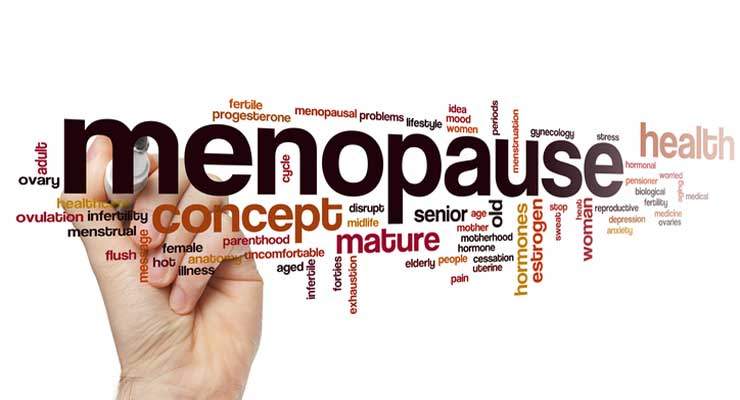Hot flashes, vaginal atrophy, relaxation of the pelvic muscles and hair growth where you don’t want it and hair thinning where you do. If that litany doesn’t make you want to scream, it will surely have you running to your nearest pharmacy for some help. Over-the-counter (OTC) medicines are available for menopausal women. Just make sure you know what’s what.
Menopause Defined
Menopause is when a woman’s period ends. It happens around age 51, although it could happen as early as the 30s or as late as the mid-50s or later. A lot depends on if you smoke and are underweight versus being overweight. Menopause usually comes earlier in the former group and later in the latter one, according to The Ohio State University Medical Center. When a woman enters menopause, her ovaries stop producing estrogen and progesterone, which can wreak havoc in a woman’s body. Perimenopause is the phase when a woman is transitioning into menopause, which can last for several years. A woman is through menopause when she has stopped having periods for one year.
Menopause Symptoms
Because of the hormonal changes, many women experience various symptoms during perimenopause and menopause such as a change in periods, hot flashes and night sweats, trouble sleeping, vaginal dryness, mood swings, trouble focusing and less hair on the head and more on the face. The way to determine which type of OTC medicine is right for you depends on which symptoms you are having.
Popular OTC Treatments
Women can treat vaginal dryness with a water-based vaginal lubricant, such as K-Y Jelly or Astroglide. Those lubricants do not contain petroleum, which you should avoid. Water-based products are better for vaginal use than are oil-based products. Other nonprescription treatments are vitamin B complex, vitamin E and ibuprofen, according to WebMD. Botanicals are also used for symptoms. For hot flashes, one of the most popular OTC botanicals is black cohosh, according to the University of Minnesota. Some controversy surrounds black cohosh, because animal testing has shown that it may affect the liver or possibly cause breast tumors.
Be Cautious
Menopausal hormone therapy, which used to be called estrogen replacement therapy, is one way that women treat menopause. But many OTC herbal and natural estrogens are available as well. You should know, however, that the many OTC natural estrogens are not FDA approved or regulated, which means that they have not gone through clinical trials to determine safety or effectiveness. It’s sort of a Wild West of sorts in this area because while some of these products are helpful, others are harmless but ineffective and expensive, and still others can cause serious problems, according to AOL Health.
A Few More Considerations
Nonprescription progesterone cream has the extracts of wild yams, which are used for menopausal relief. The active ingredient in these creams is progesterone. These creams, while available over the counter, are not recommended by the North American Menopause Society, because a person taking progesterone over the counter cannot be sure how much progesterone the skin is absorbing. Therefore, it may be ineffective, and for women taking it as a protection from uterine cancer while taking an estrogen-based therapy, it may be harmful in its ineffectiveness.
DHEA is a dietary supplement that is made from wild yams as well. You can buy it over the counter. DHEA is supposed to boost energy, put you in a better mood, increase libido, aid weight loss and delay the aging process. Side effects could include facial hair growth and acne. The higher the dose of DHEA, the greater the side effects could be. Higher dosages could cause depression, jaundice and increased risk of liver cancer, according to AOL Health. Red clover, a medicinal herb, may relieve hot flashes and vaginal dryness. Studies, however, from the journal “Menopause” found red clover to be ineffective.
Other herbal medicines that women take are evening primrose oil for hot flashes, flaxseed for hot flashes, St. John’s Wort for depression, ginkgo biloba for memory and valerian for sleep. Because all botanicals and herbs may have side effects, it is important to consult with your doctor before taking any OTC medicines.





